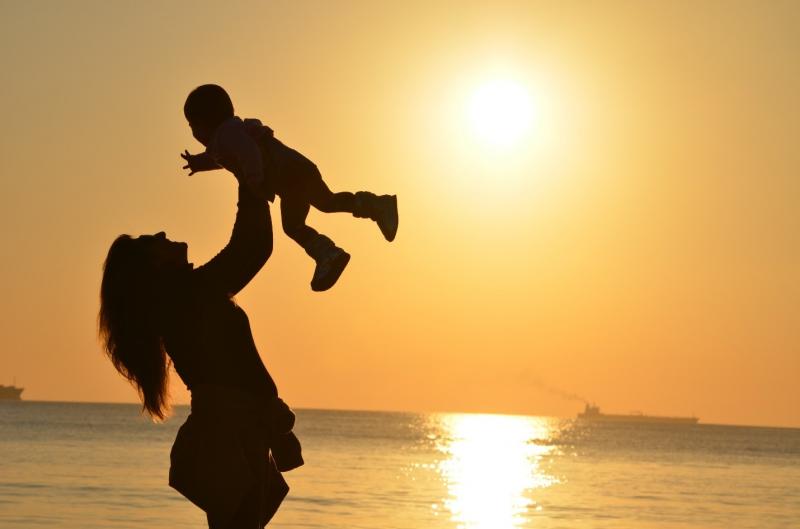5 Signs Your Infant Needs Medical Attention

Caring for a baby is strenuous work because, unfortunately, there’s no general instruction manual to guide new parents. However, every parent wishes there was some way to know what was going on, especially when their child gets sick. As babies grow, they get exposed to many infections and germs, which can cause many illnesses. While the vaccination courses are mandatory for children to protect them from serious diseases, the common cold and flu are still a problem.
Moreover, getting ill and recovering is also a normal stage of growth and development. The problem arises when the baby gets sick and cannot verbally express their pain, problems, and feelings. As parents, you must look out for warning signs in this case and take them to the doctor to get the help they need.
So, let us discuss signs that indicate your infant needs medical attention.
1. Breathing problem
If a child is breathing differently than normal, you must seek immediate medical assistance. Whether it’s fast breathing, breathing after prolonged periods, or wheezing, it can signify that the baby requires neonatal resuscitation. Because if the baby is not inhaling proper amounts of oxygen, the lack of oxygen levels in their blood can cause brain damage. Therefore, rush them to the emergency ward so that a healthcare professional can perform the procedure on the baby.
However, ensure that these professionals are well-versed in tackling the situation as not everyone can perform neonatal resuscitation. Mostly, healthcare workers who possess an NRP certification are the ones you should approach.
2. Change in behavior
Another telltale sign that your baby is unwell is when you notice a change in their behavior. Maybe they are sleeping more than usual or not playing as usual. Maybe they are not eating properly or crying incessantly. These can signify that some underlying health issue prevents your baby from acting normally. If you notice these signs, it’s critical to schedule an appointment with a pediatric healthcare practitioner and get the baby checked immediately.
Decreased energy: Listless or sleepy babies have little energy left in them. You’ll notice that your baby is sleeping more than normal, and it may be difficult to wake them up. Even when they’re awake, they may seem sluggish and tired. When presented with visual or audial stimulation, they don’t get alert or pay attention. Many parents tend to mistake this as just changing habits and consider it normal behavior. Nevertheless, decreased energy in babies is a common sign of growing infection. It can be a common cold or serious infection such as meningitis or influenza.
Moreover, diminishing energy is also a sign of heart or blood diseases like thalassemia. Apart from that, many other diseases can cause the infant to become lethargic. If you notice this abrupt change in your baby, take them to the doctor for an examination.
Fussiness: The only form of communication an infant has is crying. Over time, the baby develops several types of cries that change depending on their needs. For example, the cry for food will differ from that for sleep. Eventually, parents learn to differentiate between these cries and provide the baby accordingly. However, suppose your baby is crying inconsolably, and nothing seems to fulfill their need. In that case, it is a sign that your baby is sick. Babies who become fretful and fussy are usually that way because they feel unwell or are in pain. Moreover, their body may start to tremble.
In some cases, the jitteriness and fussiness may be a sign that your baby has gas. But if the condition persists for long, it may be something serious such as abdominal pain or infection. In this situation, take the baby to the doctor for examination immediately.
3. Fever
When an infant is three months old or younger, fever is the first sign that the infant has a serious infection. So, if you notice an instant rise in body temperature in the baby, take them to the doctor immediately.
For reference, the normal body temperature of a baby should be 38 degrees Celsius or less than 100.4 degrees Fahrenheit.
4. Poor appetite
During the first few months, babies are ready to take more feed after three to four hours. They show signs of hunger by crying or sucking their hand. However, if your baby refuses to eat for several hours and shows signs of poor appetite, it may be due to some illness. Moreover, suppose the baby has difficulty sucking the bottle, faces problems in spitting up, or starts losing weight. In that case, it is a sign that they are sick.
5. Diarrhea or vomiting
One of the most telltale signs that your baby is sick is when they start vomiting or get diarrhea. In some cases, the practitioner will need to examine the stool to determine the cause and decide on the treatment. Moreover, they will recommend ways to prevent dehydration caused by diarrhea and vomiting. Since vomiting can indicate gastroenteritis or infections caused by salmonella, parents shouldn’t take it lightly.
What to do in such situations?
To keep your infant as healthy as possible, breastfeed them as often as you can. Breast milk has enzymes and antibodies necessary for the infant’s immune system. Likewise, choose an infant formula recommended by the pediatrician, and ensure you stick with the recommended dosage.
However, always consult with a healthcare professional immediately in any situation that seems alarming.
Conclusion
Babies are sensitive beings as their immune system has not fully developed yet. Therefore, as a parent, you must take all the precautionary measures and pay attention to the baby’s behavior and health at all times. If they show any signs of sickness, immediately take them to the doctor. Apart from that, keeping up with the vaccination schedule for the infant and taking them for regular checkups will help keep their health in check.
More to Read:
Previous Posts:








